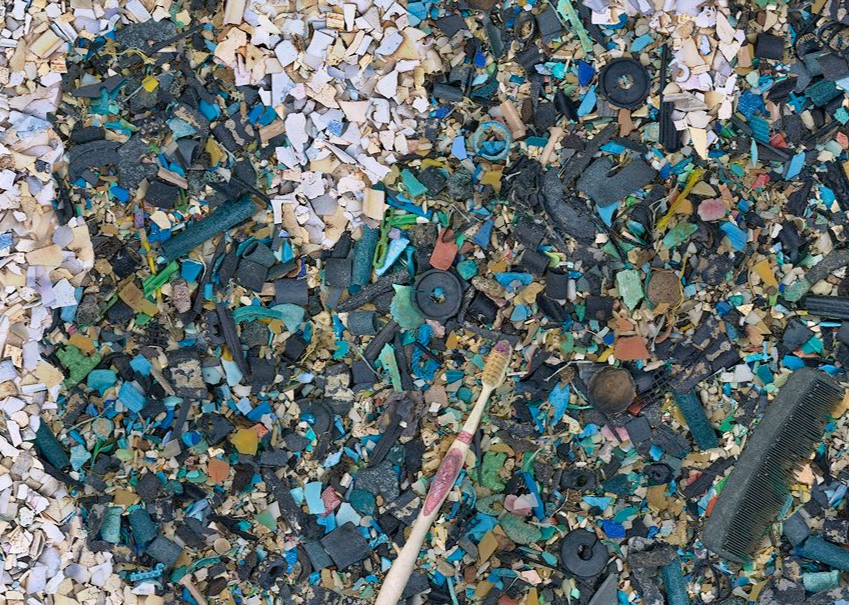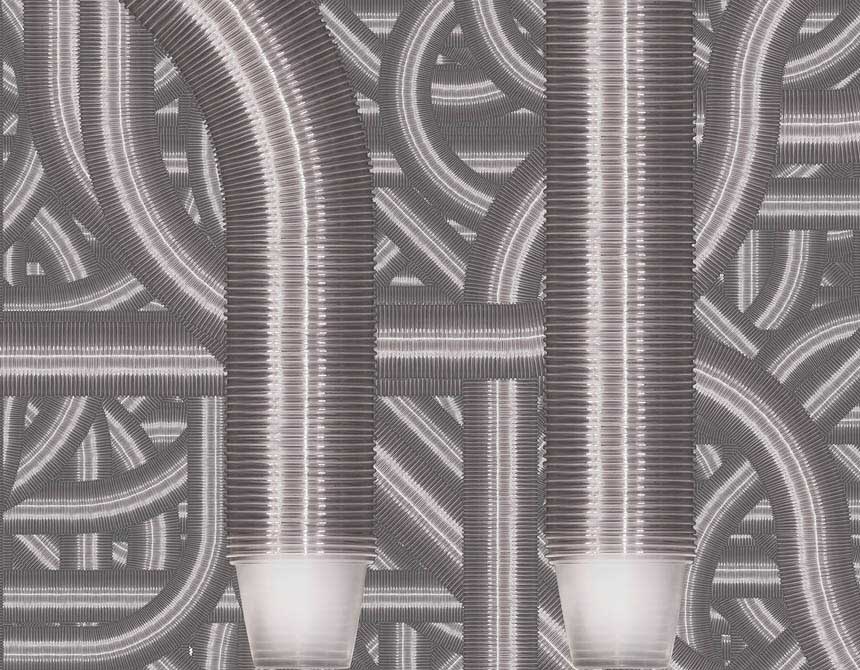Jordan
grew up in Connecticut, but now works in Seattle, WA. After studying to be a
lawyer, Jordan decided to devote his time and energy to being an artist. His
main medium is photography and digital photographic collage.
Jordan focuses on themes in our society that stem from subconscious habits,
cultural norms and trends such as mass consumption, high school dropout rates,
plastic pollution in the oceans, and environmental destruction.
In
his collage work, Jordan visually illustrates statistics so that the viewer can
more fully understand and feel the magnitude of the information. Piecing together
thousands of small images, he creates composite images that are both beautiful
and powerful.
The
statistics often focus on habits or norms that when done individually seem inconsequential,
but collectively have incredible consequences on our society and our
environment. These may be habits that we do individually, like get a fist full
of plastic bags at the grocery store; or we do culturally, such as
incarcerate a larger percentage of our population than any other country; and often have environmental implications, like over-fish the oceans.
I
have transcribed a section of Jordan’s TED talk from 2008 (find the link
below). His own words say it all:
“…the reason that I do this is it’s
because I have this fear that we aren’t feeling enough as a culture right now.
There’s this kind of anesthesia in America at the moment. We’ve lost our sense
of outrage, our anger, and our grief about what’s going on in our culture right
now, what’s going on in our country, the atrocities that are being committed in
our names around the world. They’ve gone missing; these feelings have gone
missing. Our cultural joy, our national joy is nowhere to be seen. And one of
the causes of this I think is that as each of us attempts of build this new kind
of world view, this whole optical world view, the holographic image that we are
all trying to create in our mind of the interconnection of things, the
environmental footprints a thousand miles away of the things that we buy the
social consequences ten thousand miles away of the daily decisions that we make
as consumers as we try to build this view and try to educate ourselves about
the enormity of our culture, the information that we have to work with, is these
gigantic numbers, things in, numbers in the millions, in the hundreds of
millions and in the billions, and now the trillions, Bush’s new budget is in
the trillions. These are numbers that our brains don’t have the ability to
comprehend. We can’t make meaning out of these enormous statistics. And so
that’s what I am trying to do with my work, is to take these numbers, these
statistics from the raw language of data and to translate them into a more
universal visual language that can be felt. Because my belief is that if we can
feel these issues, if we can feel these things more deeply, then they’ll matter
to us more than they do now. And if we can find that, then we will be able to
find within each one of us, what it is that we need to find to face the big
question, which is how do we change. That to me is the big question that we
face as a people right now, is how do we change…”
Environmental
issues in particular are extremely complex and often measured in very large
numbers. I am sure that some of the brush-off and complacent attitudes towards
environmental issues stem from a lack of true understanding and comprehension. Without
understanding the seriousness of environmental destruction, climate change and
their effects, it is silly to assume people will feel compassionate and/or be
inspired to change the status quo. The key in Jordan’s work is making the
viewer feel the numbers, feel the statistics, and feel their implications so that we can
work on changing for a better world.
Chris Jordan: Turning powerful stats into art, a TED Talk
 |
| Intolerable Beauty: Portraits of American Mass Consumption Cell phones #2, Atlanta 2005 44 x 90" |
 |
| Running the Numbers II: Portraits of global mass culture
Gyre, 2009 8x11 feet, in three vertical panels (Detail below)
Depicts 2.4 million pieces of plastic, equal to the estimated number of pounds of plastic pollution that enter the world's oceans every hour. All of the plastic in this image was collected from the Pacific Ocean.
 |
 |
| Running the Numbers: An American Self-Portrait
Plastic Cups, 2008 60x90" (Detail below)
Depicts one million plastic cups, the number used on airline flights in the US every six hours.
|
 |
 |
| Running the Numbers: An American Self-Portrait
Light Bulbs, 2008 72x96"
Depicts 320,000 light bulbs, equal to the number of kilowatt hours of electricity wasted in the United States every minute from inefficient residential electricity usage (inefficient wiring, computers in sleep mode, etc.).
|
 |
| Midway: Message from the Gyre |